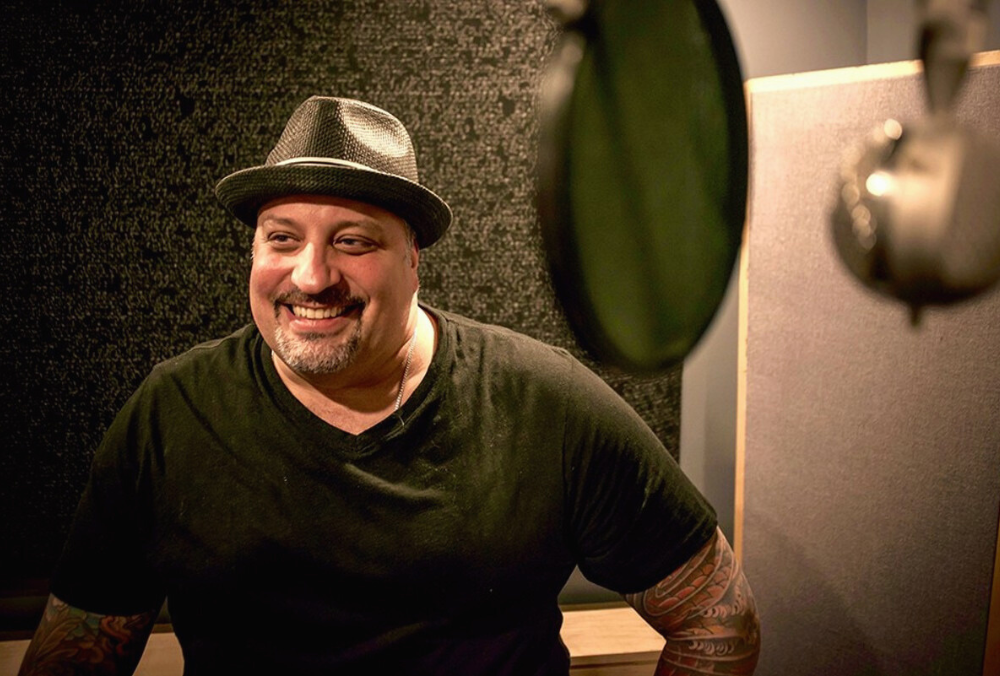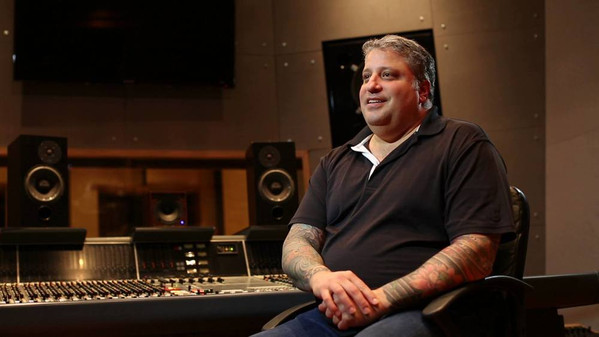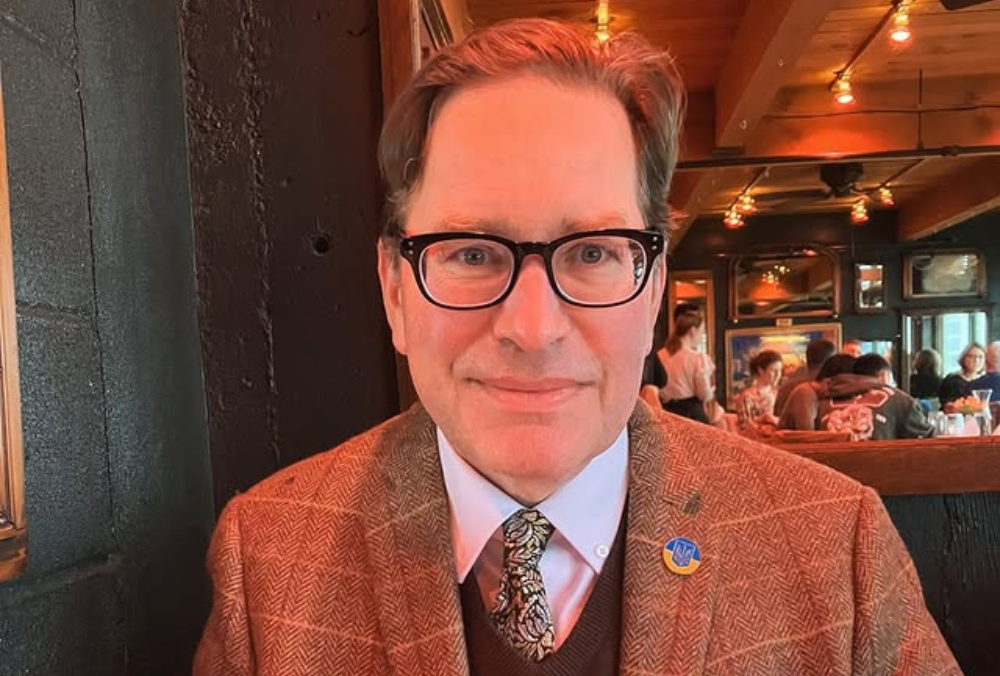
One-on-One With WISEMARY’s Diamond-certified Producer Carl Nappa
Acclaimed music producer, Carl Nappa, shared his insights and experiences in the music industry during an extensive interview. He highlighted the significant change in production brought about by the ability to record anytime, anywhere, which has both advantages and disadvantages for musicians.
Nappa’s approach as a producer is adaptive, focusing on what the artist needs, whether it’s songwriting, arrangements, or sounds. He believes in letting the musician’s identity shine through in the production process. He also reflected on his time at The Hit Factory, learning from various producers like Phil Ramone and Arif Mardin.
Discussing his work on Diamond-certified records like NSYNC’s ‘No Strings Attached’ and Florida Georgia Line’s “Cruise,” he emphasized the unpredictability of hits, focusing instead on crafting good songs.
In St. Louis, where he founded The Saint Louis Recording Club and Chain of Rocks Records, Carl Nappa noted the city’s impact on his work, especially with local artists. His work ethos revolves around striving for excellence and understanding the creative process, as seen in his collaboration with WISEMARY.

Nappa also talked about the importance of melody in songwriting, his preference for a hybrid analog and digital mixing setup, and the cruciality of a great band and song for a successful mix.
His advice for aspiring producers and engineers is to work hard, constantly learn, and adapt to industry changes. Check out the full interview below.
Throughout your extensive career, you’ve witnessed firsthand the evolution of music production. What do you think has been the most significant change in the industry since you began, and how has it influenced your process?
The biggest change that I have seen in music production has been the ability to record anywhere anytime. This has been both good and bad for musicians. Good, because you can now record whenever and wherever you want. Bad, because a lot of the time a band or musician is on their own without other people to bounce ideas off.
I have been influenced by this process by going in the opposite direction. I become a chameleon and by listening I find out what the band needs most. Do they need help with songwriting, arrangements, or sounds? The best producers to me let the band be who they are and help guide the record-making process. A producer should never be shoehorning an artist into a production that does not represent the artist!
Having mastered your skills at The Hit Factory, a place steeped in musical history, could you share an unexpected lesson or story from that time which has stayed with you?
Something that has always stuck with me from those days is watching and learning from the different producers, and how they worked a session. The way Phil Ramone would command a room, but also listen to every musician’s idea and make sure that they all happen, or how Arif Mardin would listen to a band doing basic tracks and be able to comment on every note they played, and how they played it, all while providing so much love and support. How Mike Chapman led a band through arrangements and changes effortlessly with great attention to detail. Watching Teddy Riley effortlessly switch between musical genres with ease and perfection. All these lessons and many more helped mold me into the producer that I am today.

Only a few achieve the distinction of working on Diamond-certified records. Can you describe the moment you realized a project you were working on was becoming part of music history?
With both Diamond-awarded projects that I worked on, from NSYNC’s No Strings Attached to Florida Georgia Line’s “Cruise,” featuring Nelly, I had no idea that they would make such a big impact. I worked just as hard on both of those projects as I do on everything that I work on. Those just happened to resonate with a lot of people! People are always asking can you hear a hit? I like to believe that I can hear a good song. It takes a good song to catch people’s ears. Then it’s up to the people to make it a hit!
After moving to St. Louis and starting The Saint Louis Recording Club, how has the city’s music scene influenced your work, especially when producing local artists like WISEMARY?
For most of my time here in Saint Louis, I worked mainly on my existing clients that I had before I moved here, with only a few local artists being the exception. Somewhere around 2018 or 2019, I started to notice how many exceptional artists were here in Saint Louis and that is when I started switching gears and started working with more Saint Louis artists at the beginning stages of their careers. Now with my Label Chain of Rocks Records, we can not only record these artists, but we have an avenue to release the music to the rest of the world.
WISEMARY described working with you as an experience that either left them feeling “like kings of the universe” or “absolutely defeated.” How do you balance the push for excellence with maintaining the band’s morale and confidence during the creative process?
I always search and push for excellence. The key is that the band understands what and why we are pushing for. Once the band understands the process and the “why” we can dig in and create a great piece of art! A great piece of art sometimes happens very quickly or might take some time. It’s recognizing that it is art and must be nurtured, is what separates a lot of individuals.
The band mentioned that one of their key takeaways from working with you is the idea that “words don’t matter in a melodic/musical sense, only the context does.” Could you elaborate on how you applied this philosophy specifically to WISEMARY’s new release, perhaps through a particular track or moment in the production?
Lyrics are important, and as a songwriter myself, I always fight and am a champion of the song. That said, I believe that a great melody is sometimes more memorable than a lyric. People seem to remember the melody more than the lyrics most of the time. That’s why people sing along, but sometimes with the wrong words.

What emerging trends or technologies in music production are you most excited about? With over 85.5 million records sold in the US alone, could you share the secret to a successful mix?
I like the ability to mix in a hybrid analog and digital setup. Being a producer, who is also a recording engineer, allows me to build a mix from day one and work creatively the whole time while tracking. I can try different ideas all while having the computer remember wherever the knobs and switches are every time I open a song. The key to a successful mix is to start with a great band and song!
What is the key piece of advice you offer to aspiring producers and engineers, something that you wish someone had told you at the start of your career?
Work hard and strive for greatness. Most people stop when things become too difficult, or it is too much work. Study your craft. Dissect songs for arrangements, keys, sounds, and their mixes. Always be learning. The industry is always changing. Change with it, and most of all listen first!
How did your industry experience shape your approach to music education, and what do you believe sets your curriculum apart?
I never would have imagined that I would be in education. I had blinders on for so long and all I wanted to do was make records. That said, Nelly and Pam Bell gave me the opportunity to create a recording school. I ran with that and created a curriculum that navigated students through all the different journeys of the industry.
For a long time, record engineering was passed from generation to generation orally. We accelerated the process by giving students a hands-on approach to learning. When EI closed, I moved over to Webster University here in Saint Louis, and the same teaching philosophy is here at Webster. Students getting their hands dirty on day one. No need to wait a year or two to start touching equipment. Also having one of the best staff in the Midwest doesn’t hurt either!
Your long standing working relationship with Nelly is well-known. Could you elaborate on the development of such long-term partnerships and their influence on the progression of artistic methods over time?
Yes, we have been working together for some time now. Many albums and hundreds of songs later trust is what it always comes back to. Trust is a strong bond and when you share it with an artist or band, then there is no one that they would rather be with, while we are all making music.



